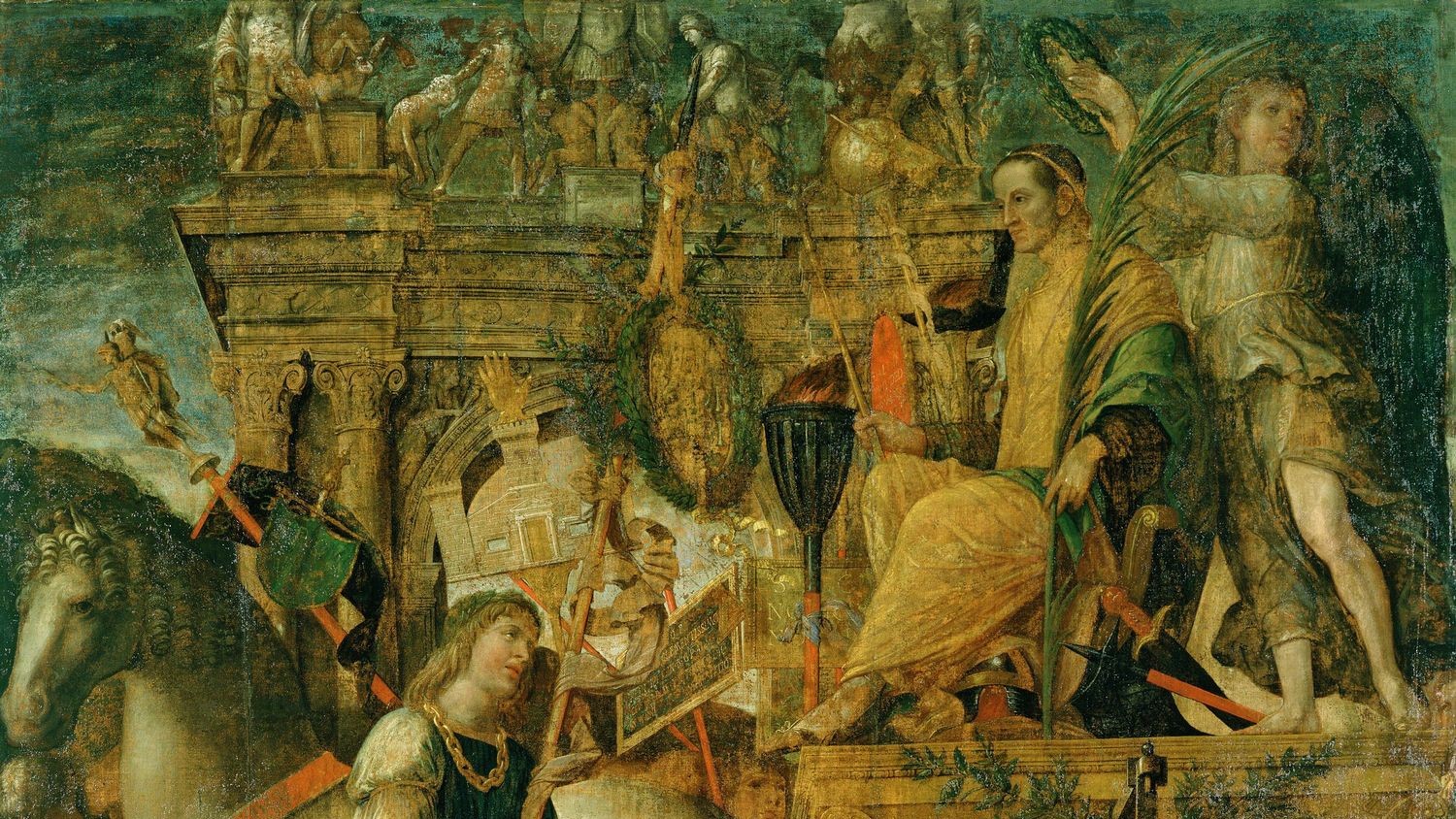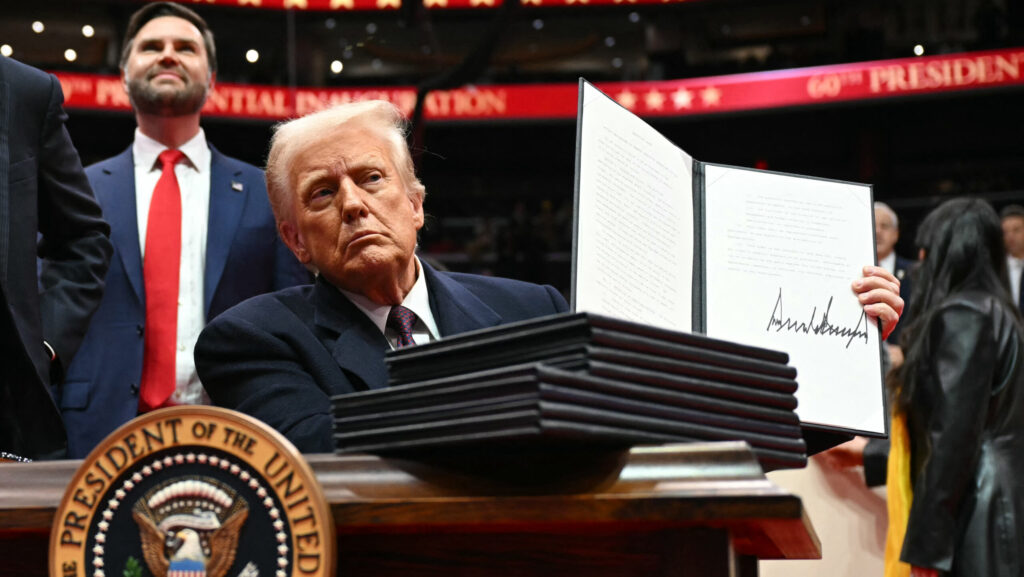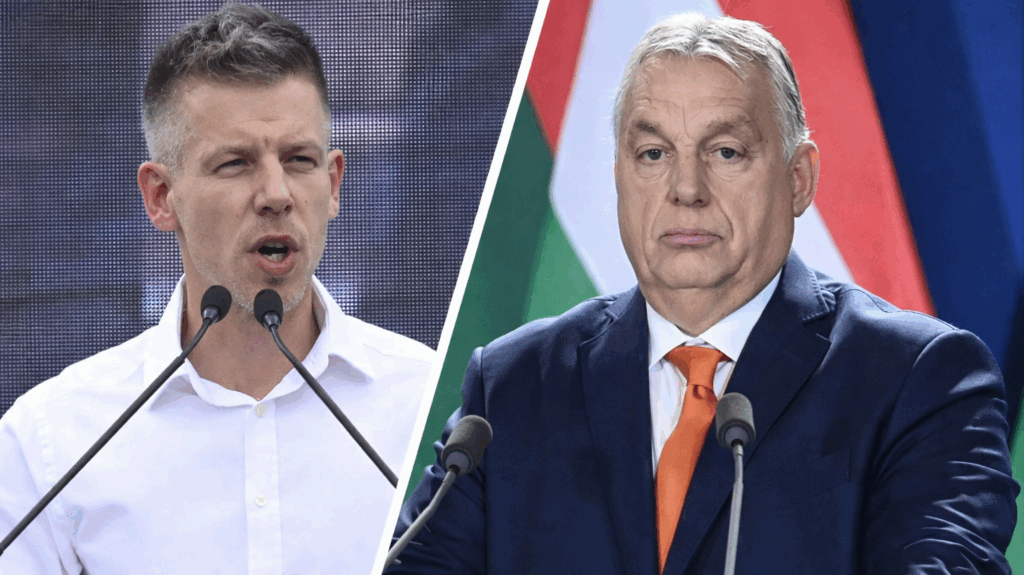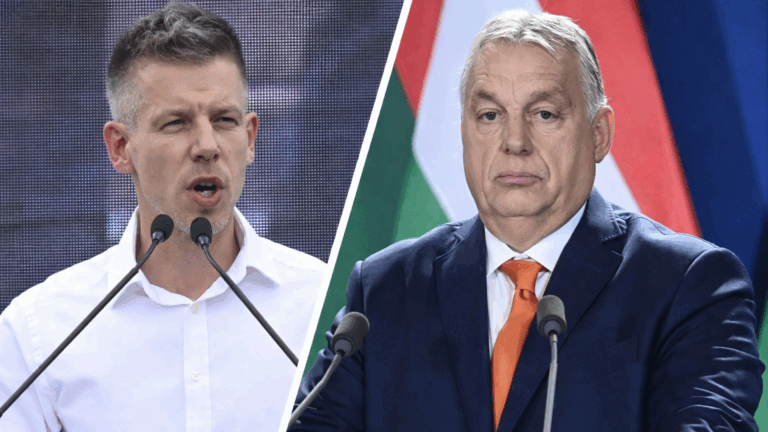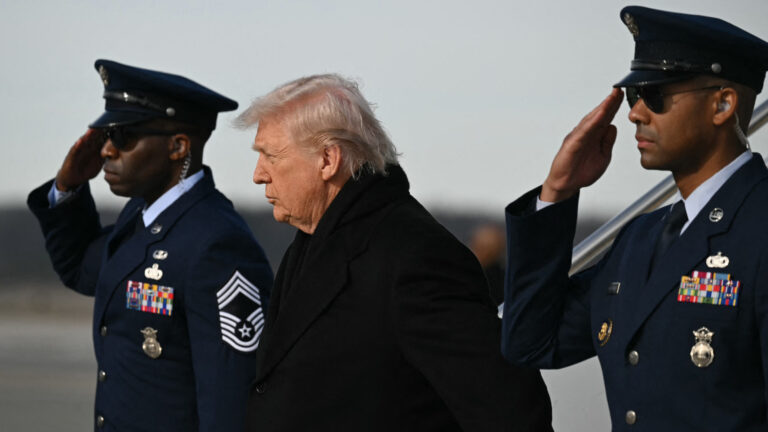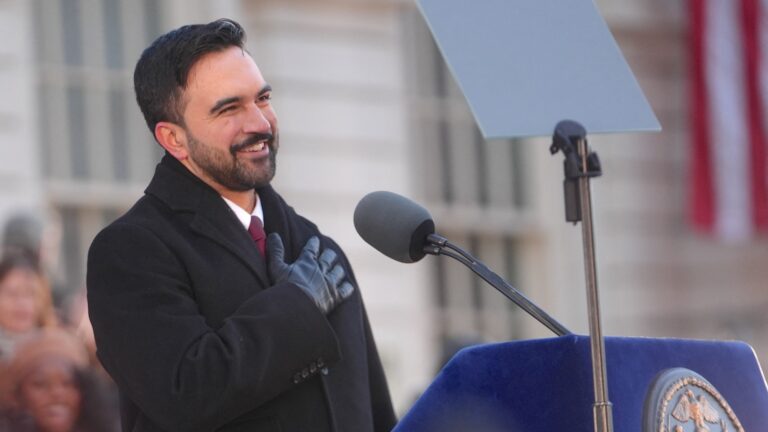On 16 May 2025 the Hungarian Institute of International Affairs (HIIA) convened a roundtable under the title ‘Trump’s First 100 Days: A New Paradigm in Presidential Leadership’. Though modest in form, the event bore the weight of high consequence, assembling three discerning observers of American politics to assess the early contours of Donald Trump’s return to office.
Guided with clarity and composure by moderator Dániel Lévai, the conversation unfolded among Nathan Levine, a visiting fellow at the Danube Institute; Director for Strategy at HIIA Tamás Baranyi; and Senior Research Fellow Ramachandra Byrappa. Together they examined not only the policy measures taken in the president’s second term, but the deeper shifts (cultural, strategic, and even spiritual) that appear to be gathering around it.
The discussion moved fluently from domestic transformation to foreign policy recalibration, from ideological realignments to questions of civilizational direction. In its tone and texture, the event resembled a modern salon: an earnest exchange of ideas, unhurried by headlines, attentive to nuance, and concerned with what endures beyond the day’s news.
What follows is a synthesis of that dialogue, capturing the spirit of reflection that animated this gathering on the banks of the Danube.
Domestic Transformations under the New Dispensation
If the first hundred days of a presidency serve, as is often said, to imprint its character, then President Trump’s second term has departed decisively from the familiar script. Gone is the improvisation of 2017. In its place, a presidency prepared, backed not merely by a party, but by a movement that has learned from its earlier entanglements with the permanent state.
Nathan Levine noted that the machinery of governance was this time assembled in advance: executive orders drafted, personnel identified and an institutional vehicle (Project 2025) poised to implement them. In contrast to Roosevelt’s careful orchestration or Biden’s self-declared transition from transitory to transformative, Trump’s action began not with contemplation, but immediacy. ‘Day one,’ as Tamás Baranyi remarked, marked the presidency’s true overture.
‘Trump’s action began not with contemplation, but immediacy’
This haste was not merely procedural, but also ideological. Ramachandra Byrappa observed that while Trump’s first term made peace with existing institutions, the second aims to bypass or reshape them entirely. Resistance persists (courts and bureaucracies remain cautious) but elite culture, long aloof, appears to have shifted. ‘Harvard is silent,’ Baranyi remarked, capturing the strange quiet that now surrounds many of the president’s initiatives.
Economically, the focus has turned downward. Where once tax relief favoured the upper half, the new administration pursues policies aimed at the forgotten majority: factory workers, rural towns and small business owners. There have been disappointments, notably the stalling of Elon Musk’s DOGE initiative. Yet Levine suggested that the deeper ambition is cultural, not merely economic: to reorder the very architecture of governance and social legitimacy.
A ‘vibe shift’, as Levine called it, has begun—faintly perceptible, uneven in execution, but unmistakably underway. Whether it endures, or dissolves under the weight of contradiction, remains the central question of this domestic reordering.
Foreign Policy Recast in Trumpian Prose
If in domestic affairs the Trump administration moves with prepared boldness, then in foreign policy it advances with instinct. And yet, instinct is not without logic. In place of doctrine, there is deliberation; in place of grand design, the president’s own calculus: transactional, strategic and realist.
Levine recalled the president’s recent address in Saudi Arabia, which he described as a definitive departure from the long arc of American interventionism. Where previous presidents sought to shape the world to an ideological image, Trump now accepts the world as it is: fractured, multipolar and unsentimental. ‘America First’ does not mean America alone, Levine argued, but rather an unembellished pursuit of national interest, openly stated and pragmatically pursued.
This has given rise to a foreign policy that resembles commerce more than crusade. Tariffs, once dismissed as protectionist bluster, are now seen as instruments of discernment, as tests of loyalty and tools of negotiation. Byrappa described them as a method of sorting friend from foe: provoking Europe, testing Asia, and unsettling allies into new clarity. Baranyi suggested that what appears erratic may in fact be structured: concentric circles of priority, beginning with the American continent, extending outward with measured scepticism.
‘Tariffs, once dismissed as protectionist bluster, are now seen as instruments of discernment, as tests of loyalty and tools of negotiation’
Europe, once a favoured partner, now finds itself under a colder light. The United States, Byrappa argued, has grown wary of its old allies’ ideological drift and perceived infidelity. From the Digital Services Act to European involvement in American domestic politics, Brussels is seen less as a peer than as an irritant. ‘The swamp,’ Levine quipped, ‘has moved from Washington to Brussels.’
In this new landscape, old friendships are reassessed. Orbán is admired. Meloni is tolerated. Germany is doubted. Whether these relations stabilize or rupture depends less on declarations than on deeds. Trump’s world, as all agreed, is one measured in trade balances, loyalty tests, and private deals sealed in full daylight.
Civilization, Spirit and the Long Peace
Beyond tariffs and treaties, the conversation turned toward questions of enduring order—of war and peace, of spirit and nation. It was here that the tone of the discussion deepened, gesturing not merely toward policy but toward the broader civilization Trump’s America claims to defend.
The question of Ukraine was addressed with a sober realism. Trump had promised peace within 24 hours, an ambition as striking as it is improbable. Yet as Tamás Baranyi observed, true resolution remains elusive. With Russia advancing and Ukraine embattled, a ceasefire, rather than a treaty, now appears the most viable outcome. For all his instinct for deal-making, Trump cannot compel peace without partners prepared to concede. And if he cannot, Nathan Levine warned, he may simply walk away, forcing the region to settle on its own terms.
But even deeper than strategy lies a stirring of spirit. A shift is taking place, Levine noted, particularly among the young: a return to religion, not as cultural inheritance but as conviction. Catholic parishes, once sparsely attended, now see pews filled by those under 30. Among this generation, there is a rejection of fluidity in favour of form, of placelessness in favour of rootedness. Ramachandra Byrappa called it a ‘will to order’, emerging in reaction to years of drift.
‘Among this generation, there is a rejection of fluidity in favour of form, of placelessness in favour of rootedness’
The election of an American pope (symbolic, yet potent) has added an unexpected dimension. Whether he can mirror the influence once held by John Paul II is uncertain, but the appetite for spiritual authority is real. Even Baranyi, long focused on strategic calculus, welcomed the turn away from mere policy.
Here, at last, the conversation came full circle. For a civilization to hold, it must offer not only prosperity or protection, but meaning. And in this, Trump’s second term finds itself at the intersection not just of politics, but also of culture and faith.
Questions and Answers
As the panellists concluded their principal reflections, the floor was opened to audience interventions.
One question by Hugo Martin returned to a remark by Nathan Levine: that ‘culture follows elite culture.’ Levine described a change unfolding at that elite level: once uniformly aligned with progressive ideals, America’s cultural institutions (Hollywood, Silicon Valley, the academy) are beginning to signal a reversal. A conservative, post-liberal sensibility is emerging: more serious, more rooted and increasingly at odds with the utopian visions of the previous decade. That shift, he argued, is already reshaping the broader social mood, particularly among younger Americans.
Though Levine did not cite it, his observations echoed Robert Michels’ ‘iron law of oligarchy’ (1911): the idea that all complex organizations, even those built on democratic ideals, inevitably centralize power in a ruling few. Applied to culture, the law suggests that moral and aesthetic norms do not rise from below but are shaped from above by those who command institutions of influence.
Another intervention touched on the new Pope. Could a spiritual resurgence accompany the political one? Could this papacy act as a lodestar, akin to John Paul II’s role in the waning days of Soviet Europe? The panel was cautiously intrigued. Byrappa saw in young Americans a renewed appetite for belief; Baranyi pointed to the collapse of the post-national consensus. A spiritual vector, they agreed, may now be joining the geopolitical.
The spectre of China (and of Taiwan) was also raised. Here, the responses were united in tone, if varied in emphasis. Trump, all agreed, would bolster Taiwan’s defences, if not necessarily with grand rhetoric. Surprise and unpredictability, rather than guarantees, would mark his approach. Tariffs and arms would speak louder than communiqués.
Finally, a question was asked on the economy: With Trump’s early policies facing resistance and market unease, was confidence fading? Baranyi invoked Reagan’s 1982, a year of pain before recovery. What mattered, he insisted, was resolve. The panel, though measured, concurred: disorder may precede clarity—but not all disorder is decay.
The portrait that emerged in the words of the panellists was not of a man, but of a moment: a second Trump term less defined by novelty than by a sharpening of intent. At home, a reordering; abroad, a recalibration; beneath both, a revival of older instincts long suppressed. Whether this era will bring consolidation or rupture remains uncertain, but one thing is clear: the age of managerial drift is over. In its place stands a presidency more Caesar than consul and more instinct than theory. History, once again, is taking sides—and Donald Trump appears determined to pick one first.
Related articles:

